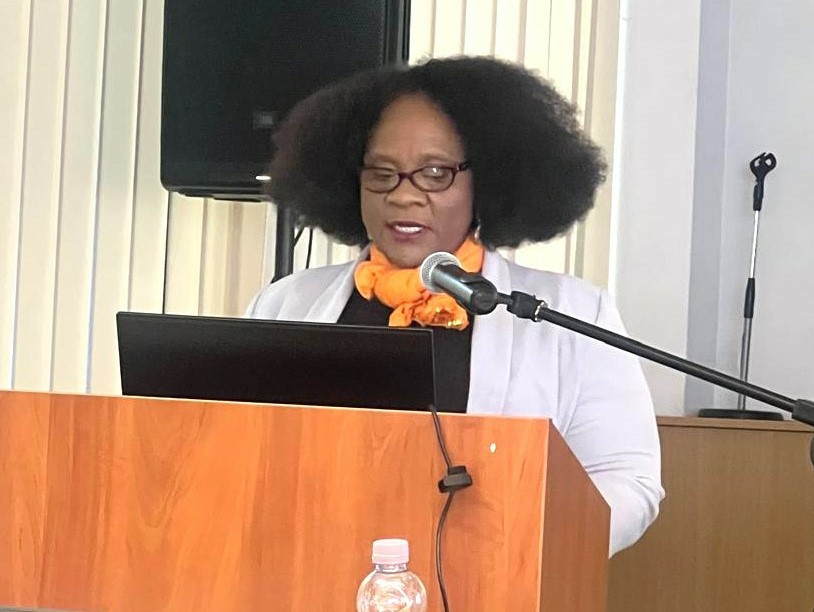
On Thursday, 8 August 2025, at the EnergyWaterFoodClimate (EWFC) Summit in Hungary, Professor Nokuthula Sibiya, Vice-Chancellor of Mangosuthu University of Technology, delivered a pivotal address titled “Advancing Women-Led Pathways Toward an Africa Devoid of Unemployment, Hunger, Climate Risks, and Inadequate Human Settlements” at the University of Miskolc, Hungary where MUT presented at least eight papers. Centred on empirical research and aligned with Sustainable Development Goals (SDGs) and Agenda 2063, her presentation articulated a framework addressing unemployment, food insecurity, climate vulnerability and inadequate human settlements in Africa. This keynote address highlights the work being conducted by the University’s Women in Climate Change group, led by Professor Sibiya.
Captivating the audience of international delegates, Professor Sibiya highlighted alarming statistics, including a 32.9% official unemployment rate in South Africa and an unsustainable youth unemployment rate of 61%, underscoring the need for labour law reform and the development of green skills. Professor Sibiya argued for the recognition of food as a human right, advocating for food sovereignty spearheaded by women, and called for a return to climate-resilient agricultural practices rooted in indigenous knowledge.
Furthermore, Professor Sibiya proposed a women-centred climate strategy emphasising training in clean energy and ecological management, integrating climate planning into various sectors, and prioritising women’s leadership in adaptation programmes. In terms of urban planning, Professor Sibiya stressed the importance of recognising informal settlements as permanent communities, advocating for participatory governance and dignified infrastructure.
Professor Sibiya’s policy recommendations included reforming labour laws, supporting small and medium enterprises (SMMEs), empowering women farmers, and integrating women into urban planning to foster sustainable development. Conclusively, Professor Sibiya said, “The lasting transformation in Africa necessitates self-determination and leadership from women, supported by research-driven initiatives and equitable partnerships”, leaving the audience moved and contemplating a difficult and long road ahead for women as they navigate the nexus of energy, water, food, and climate challenges.
